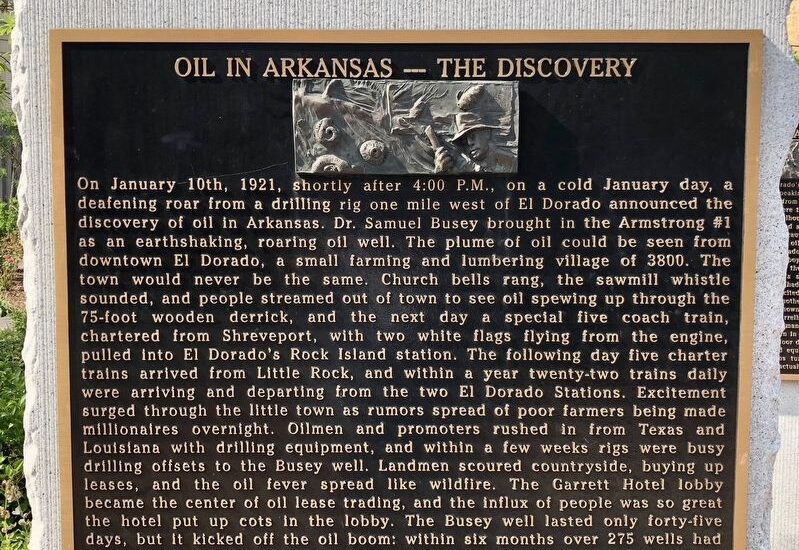As you find yourself near a seemingly unassuming point in Arkansas, you’re actually standing on ground that tells a fascinating tale of transformation. This is the site where, in 1921, oil was discovered in Arkansas, marking a turning point in the state’s economic history. Imagine the scene back then: rural landscapes dominated by agriculture, suddenly disrupted by the promise of black gold beneath the earth.
The story begins in the early 20th century, a time when America was rapidly industrializing and the demand for oil was skyrocketing. Prior to 1921, Arkansas was primarily known for its agriculture, with cotton fields stretching as far as the eye could see. But beneath this agricultural expanse lay untapped potential that would soon change the state’s fortunes.
In the early months of 1921, wildcatters—those daring individuals who drilled for oil without certainty of its presence—struck oil in Union County, Arkansas. This discovery set off a flurry of excitement and activity, drawing investors, entrepreneurs, and laborers from all over the country. The area quickly became a hub of activity, as oil derricks sprouted up like a forest of steel, and towns transformed seemingly overnight with the influx of wealth and opportunity.
One of the most notable figures in this oil boom was Samuel T. Busey, a geologist whose expertise played a crucial role in identifying promising drilling sites. His work not only contributed to the success of the oil industry in Arkansas but also positioned the state as a significant player in the national oil market.
The impact of the oil discovery was profound. It spurred economic growth and led to the development of infrastructure, including roads and railways, to support the burgeoning industry. This period also saw the rise of new towns and communities, as people flocked to the area seeking fortunes and employment.
However, the boom was not without its challenges. Environmental concerns arose as the rush to extract oil sometimes led to reckless practices. Moreover, as with many booms, there came a bust. By the late 1920s, the initial frenzy had subsided, and the market stabilized.
Today, the legacy of the 1921 oil discovery lives on. While the fields may not be as active as they once were, the impact on Arkansas’s economy and its transformation from an agriculture-based state to a more diversified one is undeniable. The discovery helped lay the groundwork for future industrial developments and contributed to shaping the state’s modern identity.
As you reflect on this historical milestone, consider the broader context of the time. The early 20th century was a period of immense change and opportunity in America, and Arkansas’s oil discovery is a testament to the pioneering spirit and resilience of those who dared to dream and drill.
Although the oil wells are quieter now, the story of 1921 continues to resonate, reminding us of a time when the promise of oil turned Arkansas into a land of opportunity.



